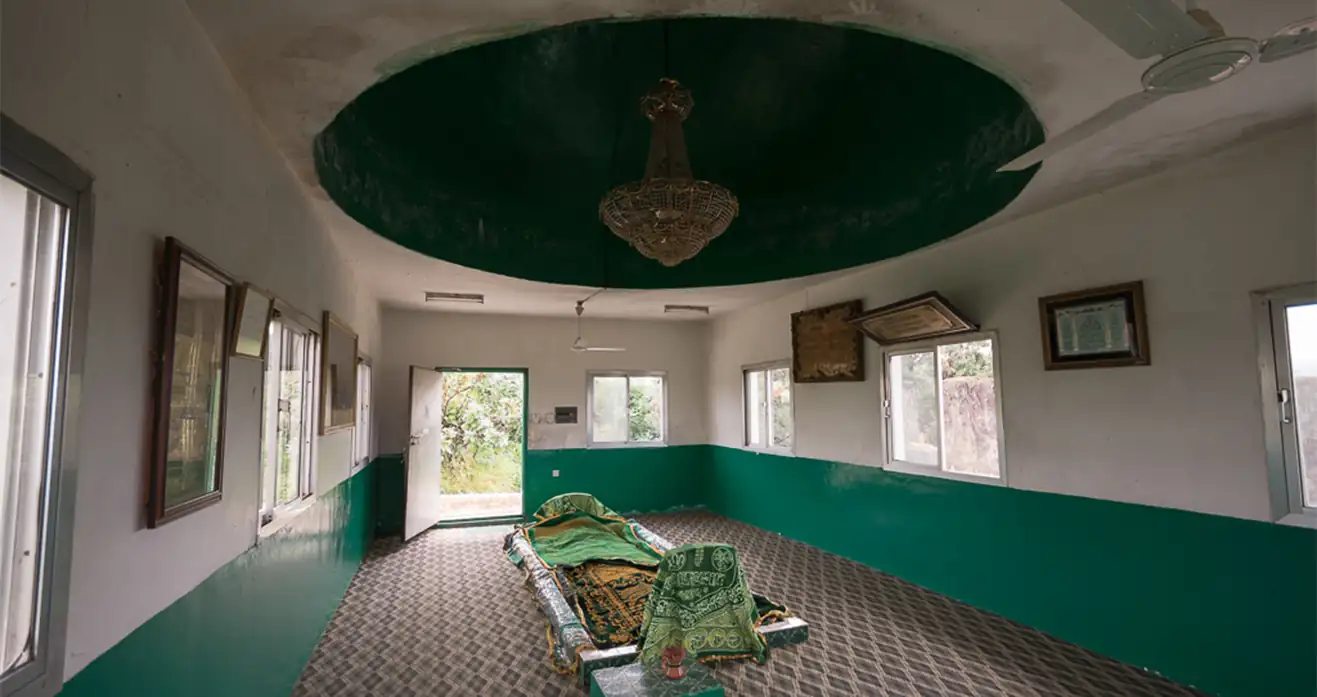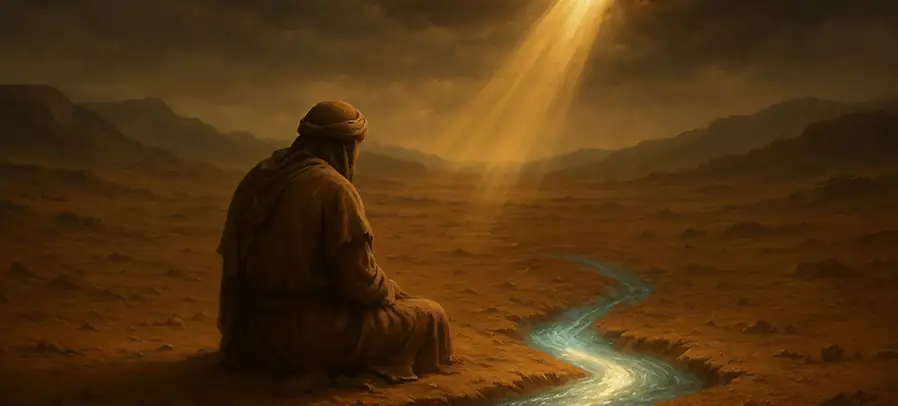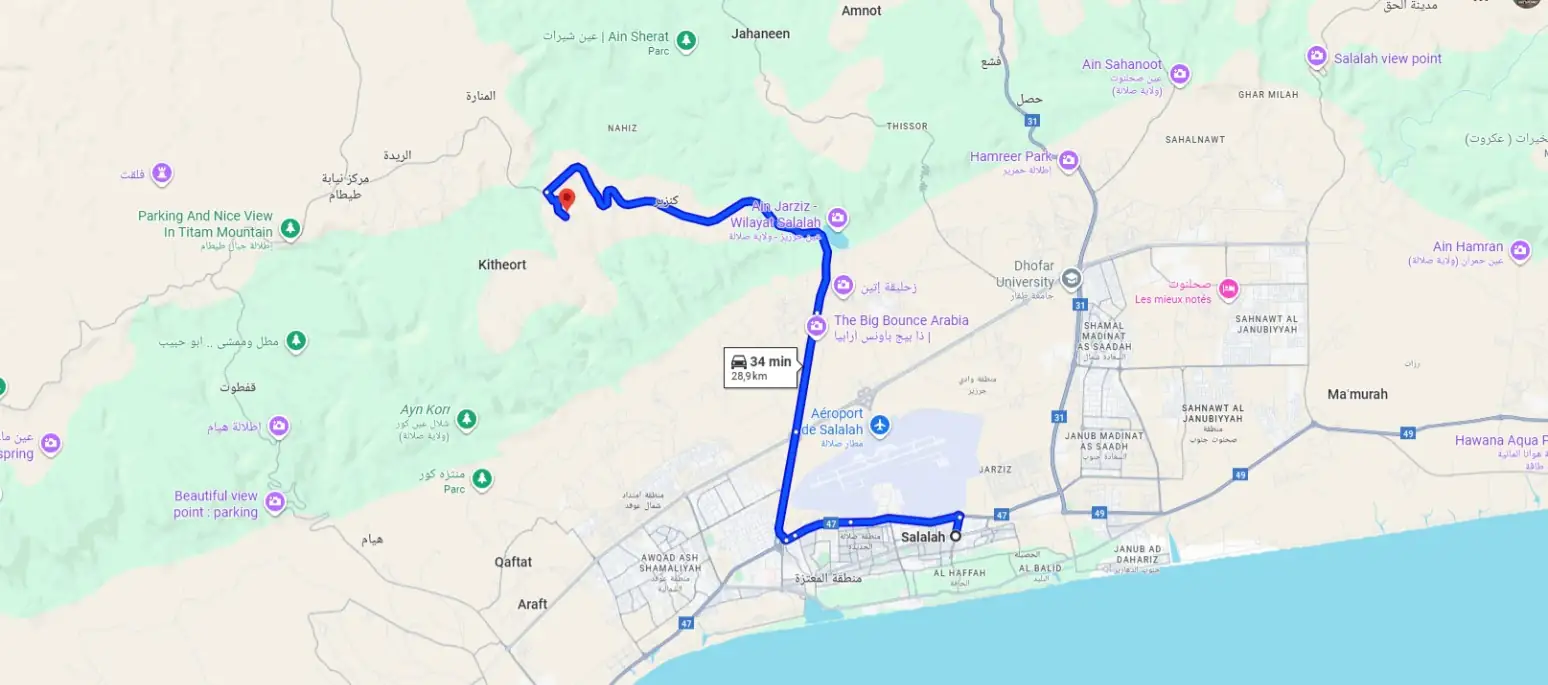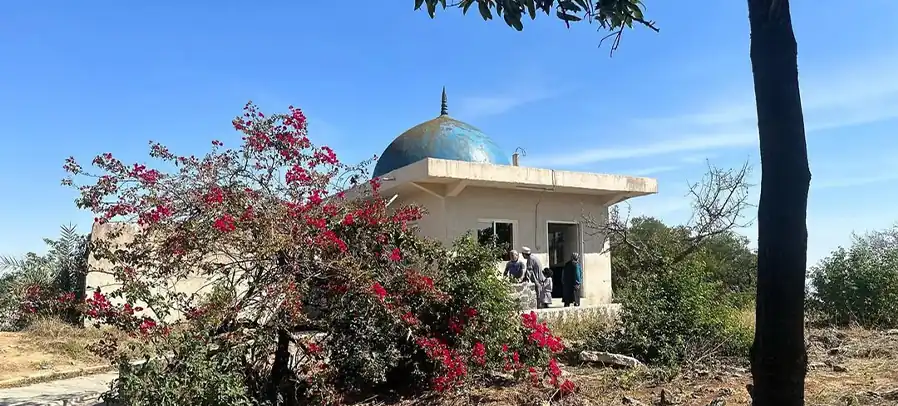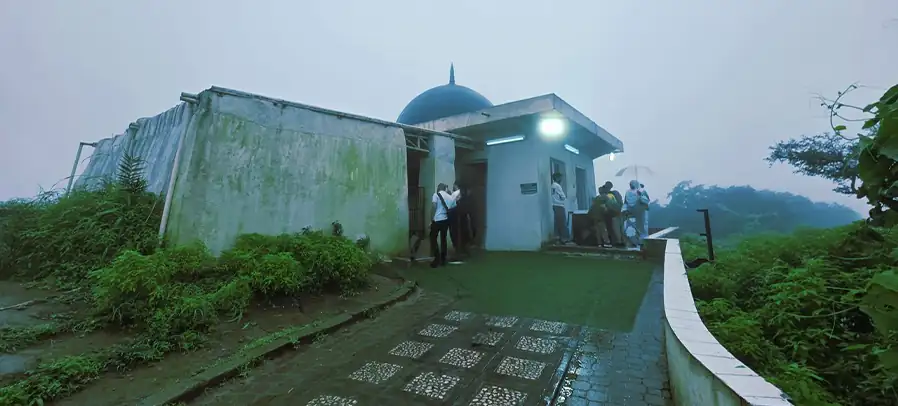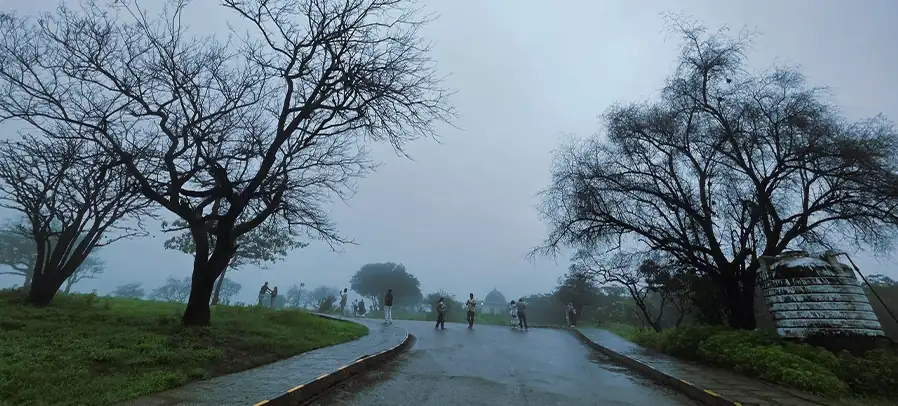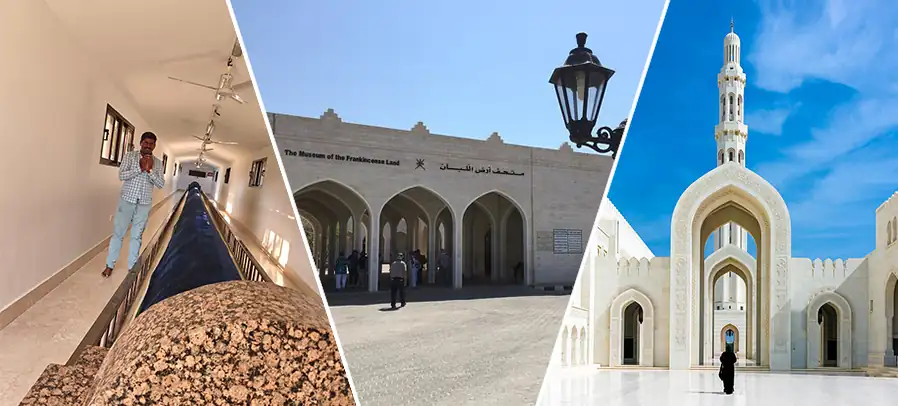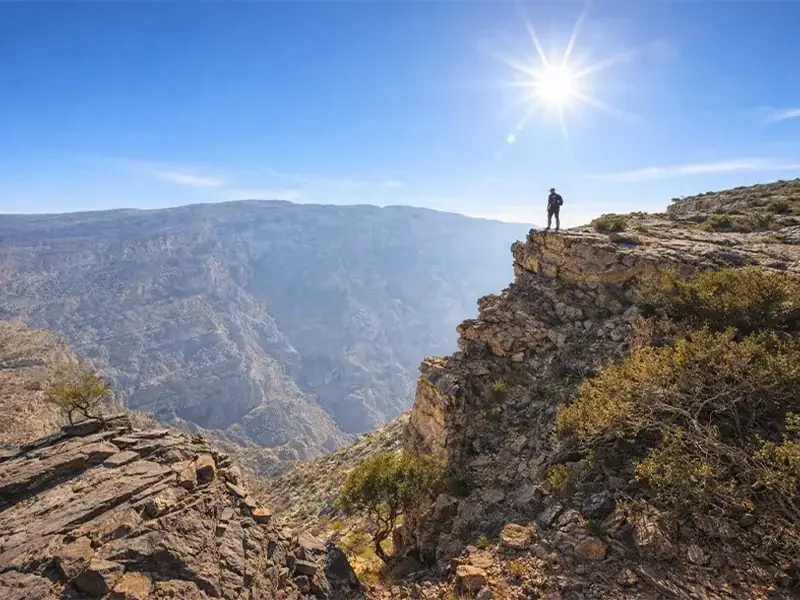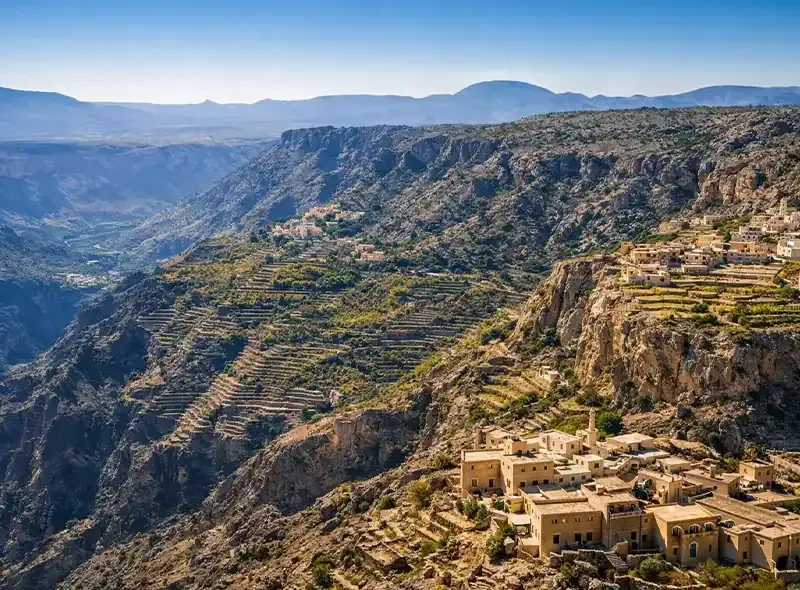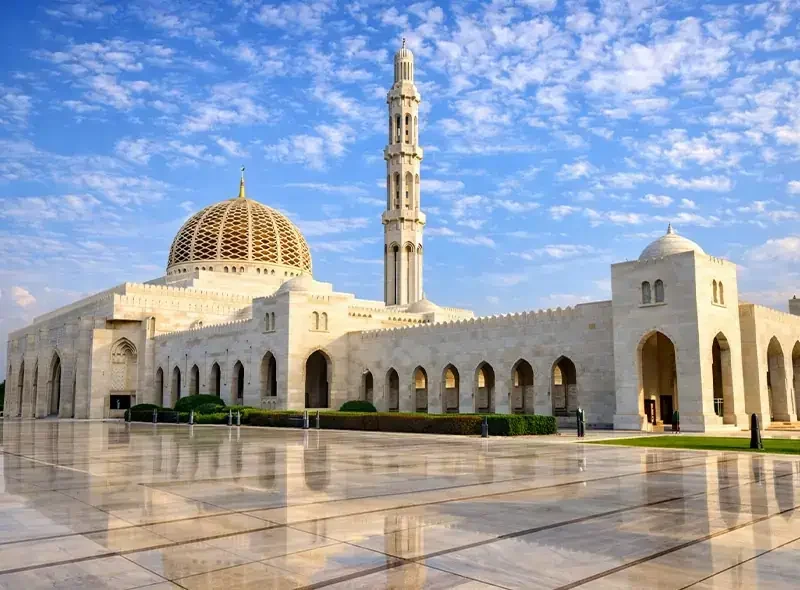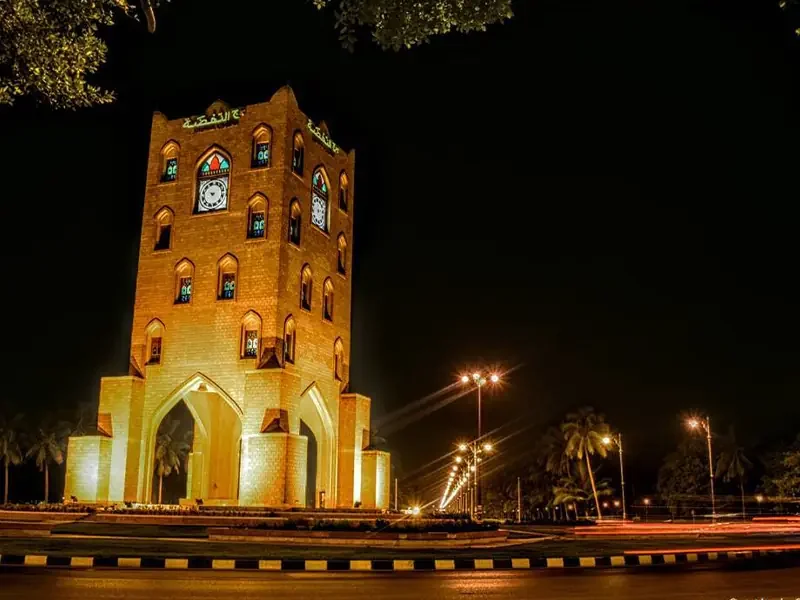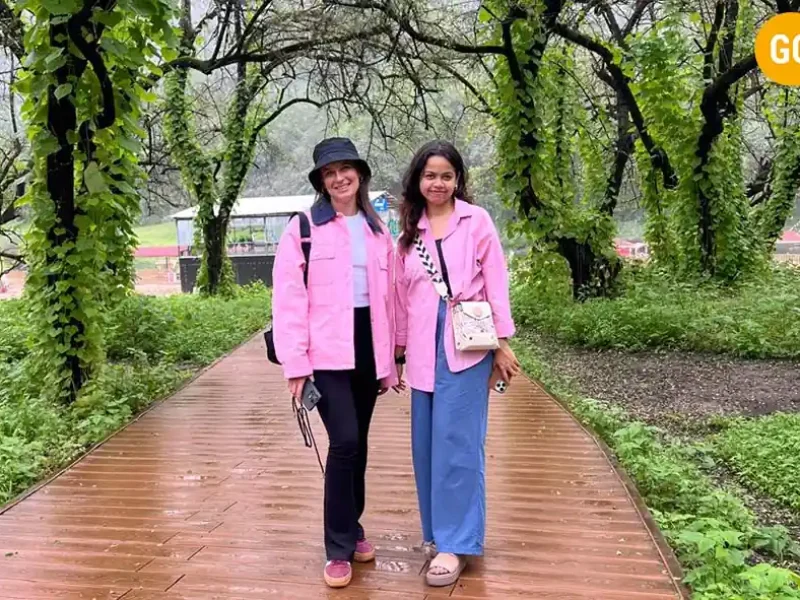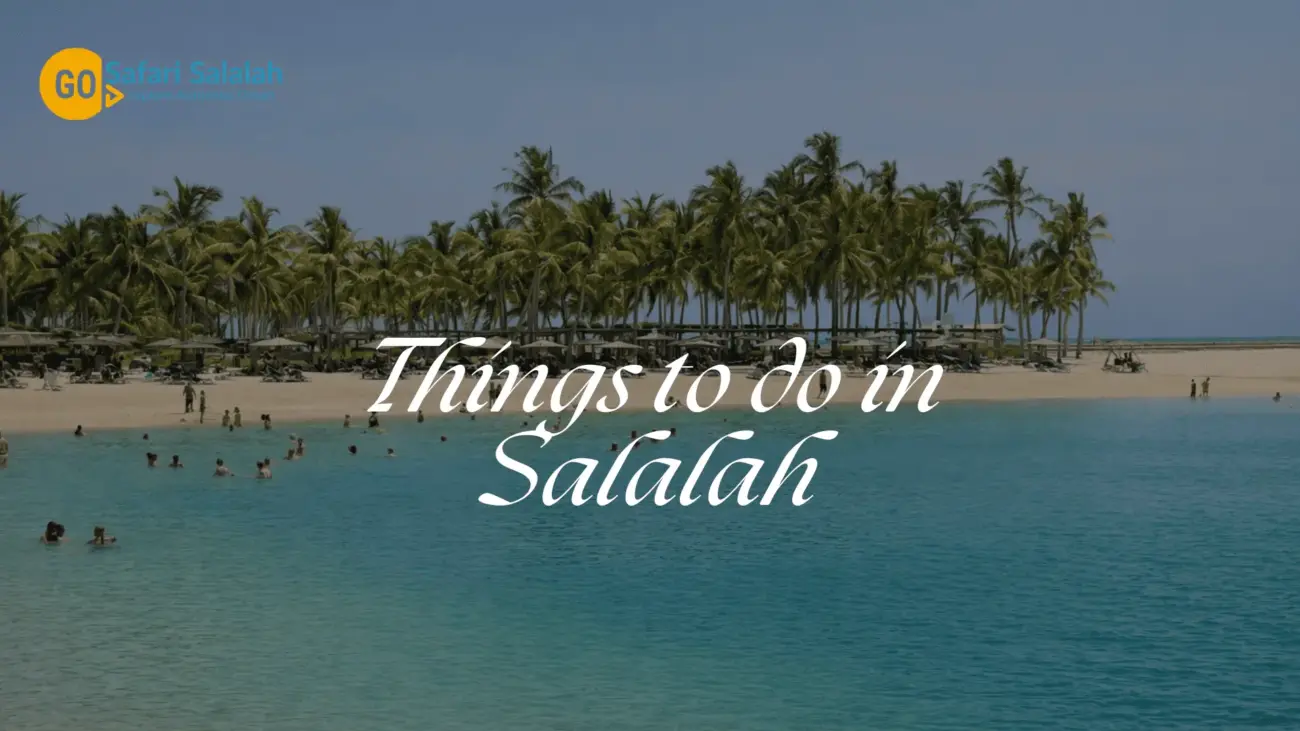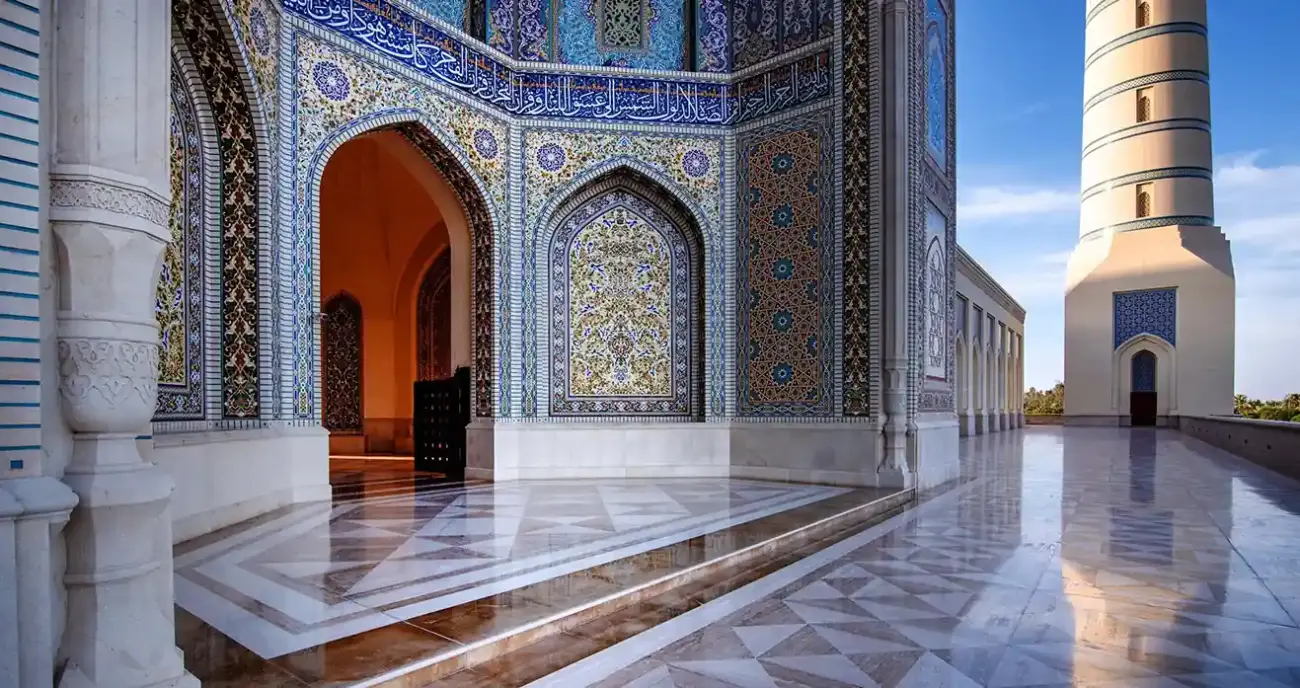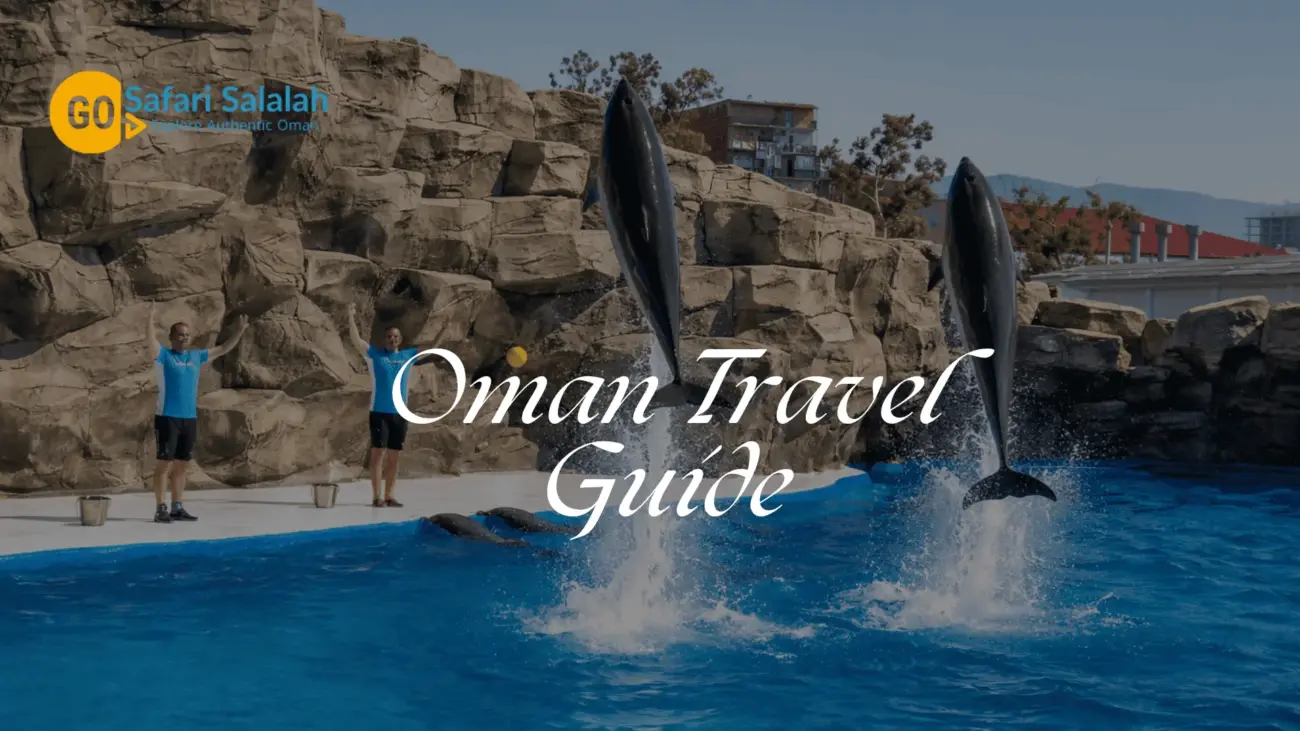The Enduring Legacy of Prophet Job (Nabi Ayub)
Prophet Job—Nabi Ayub in Islam—is revered across faiths for his unwavering patience during hardship. His story, shared in the Quran, Bible, and Torah, teaches that true faith shines brightest in times of trial.
At the Nabi Ayub Tomb in Salalah, visitors stand where patience triumphed over suffering. According to Islamic tradition, God restored Ayub’s health and blessings after his sincere prayers, making this sacred place a reminder that perseverance is always rewarded.
Where Faith Meets Nature: The Location of Nabi Ayub Tomb
Nestled on Jabal Al Qar, just 40 kilometers from Salalah, the Nabi Ayub Tomb overlooks rolling green valleys that come alive during the Khareef monsoon season. The journey itself is breathtaking—winding through mist-covered mountains and lush scenery.
Easily accessible by car, the site offers parking and a serene walking path to the tomb. Nearby attractions include Wadi Darbat, Al Baleed Archaeological Park, and Mughsail Beach, making it an essential stop on any Salalah itinerary.
Architecture and Atmosphere of the Sacred Site
The architecture of the Prophet Job Tomb is humble yet deeply spiritual, reflecting Dhofar’s traditional simplicity. Inside, visitors find a peaceful space for prayer and reflection. One of the most remarkable features is a preserved footprint believed to belong to Prophet Job, adding a tangible link to his story.
The tranquil setting and the soft mountain breeze make the visit a moving experience that blends spirituality with nature’s quiet power.
A Pilgrimage Beyond Religion
The Nabi Ayub Tomb welcomes people of all faiths—Muslims, Christians, and Jews—who share admiration for Prophet Job’s strength and devotion.
For Muslims, visiting the tomb is a spiritual journey of reflection. For others, it represents universal virtues of endurance and trust in God. Visitors often spend quiet moments in prayer, inspired by a story that transcends religious boundaries.
Customize your Trip With Go Safari Salalah
Are our Salalah City Tour places not fulfilling enough? Contact us and tailor a city tour to your aspirations and desires.
Planning Your Visit: Tips for Travelers
The best time to visit is from October to April, when the weather is pleasant. Visitors are encouraged to dress modestly and maintain silence to preserve the sacred atmosphere.
Before your visit, learn about Prophet Job’s story to deepen your experience. Photography inside the tomb is discouraged out of respect for its sanctity.
Nearby Wonders of Salalah
After visiting the Nabi Ayub Tomb, explore the nearby Sultan Qaboos Mosque, the Frankincense Land Museum, and Prophet Imran’s Tomb.
Nature lovers can unwind at Ayn Razat, Al Fizayah Beach, or the waterfalls of Wadi Darbat, experiencing the lush beauty that defines Salalah.
Experience Faith and Tranquility in Salalah
Whether you seek spiritual peace, cultural discovery, or simply the serene beauty of the Dhofar mountains, Nabi Ayub Tomb in Salalah promises an unforgettable experience.
Plan your journey today and walk in the footsteps of one of history’s most patient prophets.

